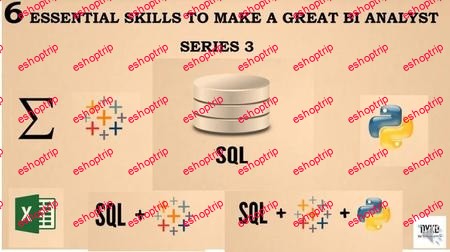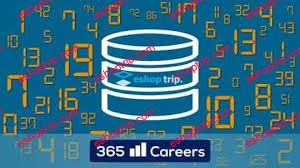Published 8/2024
Created by EDUCBA Bridging the Gap
MP4 | Video: h264, 1280×720 | Audio: AAC, 44.1 KHz, 2 Ch
Genre: eLearning | Language: English | Duration: 133 Lectures ( 19h 3m ) | Size: 5.79 GB
Master Sybase from beginner to advanced levels and become a database management expert!
What you’ll learn:
Understand SAP Sybase Basics: Gain a solid grounding in what SAP Sybase is, including its role and significance in database management.
Data Modification and Table Creation: Learn to modify data, create tables with primary and foreign keys, and manage data relationships.
Database Operations: Develop skills to create and alter databases, insert records, and use various SQL commands for data selection and manipulation.
Advanced SQL Queries: Perform complex queries using operators, clauses, subqueries, aggregates, and functions.
View and Index Management: Create, update, and manage views and indexes for optimized data retrieval.
Batch Processing and Control Flow: Implement batch processing and utilize control flow statements like IF, ELSE, and CASE for advanced data operations.
Stored Procedures and Cursors: Write and manage stored procedures, understand the use of cursors, and handle data fetching and updates efficiently.
Triggers and Transactions: Create and manage triggers for automated actions and understand transaction management, including isolation levels and locking mechan
System Administration: Perform essential system administration tasks, including database backup, configuration, and system stored procedures.
Performance Tuning: Apply best practices for performance tuning and optimization of Sybase databases to ensure efficient and reliable operations.
Requirements:
There are no strict prerequisites for this course. However, a basic understanding of databases and SQL will be beneficial. Students should have access to a computer with SAP Sybase installed for practical exercises.
Description:
Students will learn how to manage and manipulate data using SAP Sybase, from creating and altering tables to advanced tasks like batch processing, creating triggers, and managing transactions. They will gain a thorough understanding of SQL queries, procedures, functions, and system administration tasks in Sybase, preparing them for roles in database management and data analysis.Section 1: Sybase – BeginnersIntroduction to SAP Sybase BeginnerThis section is designed to introduce students to the basics of SAP Sybase. Starting with a broad overview of what Sybase is, students will learn essential skills such as data modification, creating tables with primary and foreign keys, and inserting records. The section also covers creating and altering databases, tables, and views, as well as selecting data using various operators and clauses. By the end of this section, students will have a solid understanding of how to manage and manipulate data in Sybase.Section 2: Sybase – Intermediate to AdvancedIntroduction to SAP Sybase IntermediateBuilding on the foundational knowledge, this section delves into more advanced topics such as creating and updating views, batch processing, and using control-flow statements like IF and CASE. Students will also learn about system and aggregate functions, procedures, and cursors. Advanced topics include creating and managing triggers, transactions, and understanding different isolation levels. The section aims to equip students with the skills needed for efficient database management and complex data manipulation in Sybase.ConclusionBy completing this comprehensive course, students will master both basic and advanced functionalities of SAP Sybase, enabling them to handle complex database management tasks with confidence. They will be well-prepared to apply their skills in real-world scenarios, making them valuable assets in any data-driven organization.
Who this course is for:
This course is ideal for aspiring database administrators, data analysts, software developers, and IT professionals who want to gain comprehensive knowledge of SAP Sybase. It is also suitable for students and educators in the field of data management and database systems.
Homepage


![Test Automation for Beginners [Selenium Cypress Playwright]](https://eshoptrip.org/wp-content/uploads/2024/08/Test-Automation-for-Beginners-Selenium-Cypress-Playwright-600x422.jpg)







